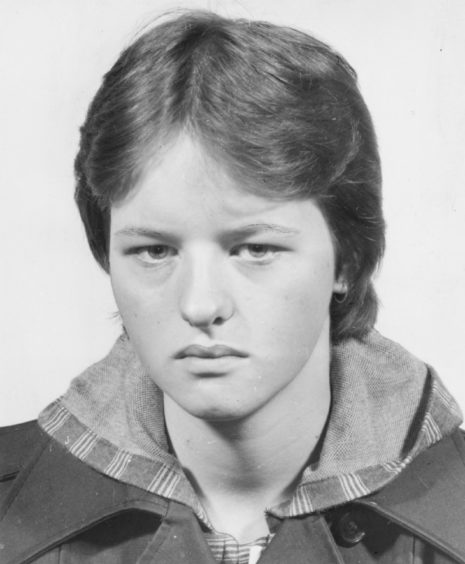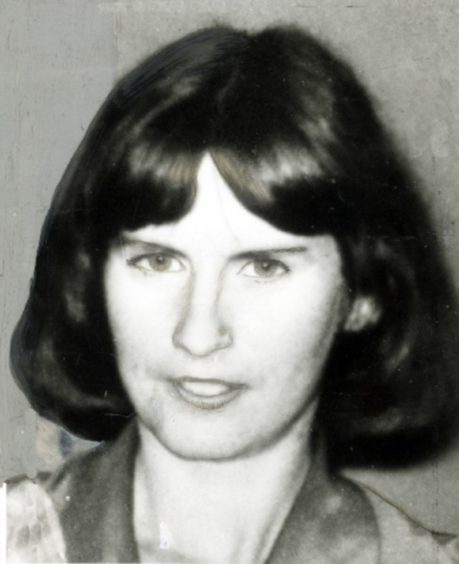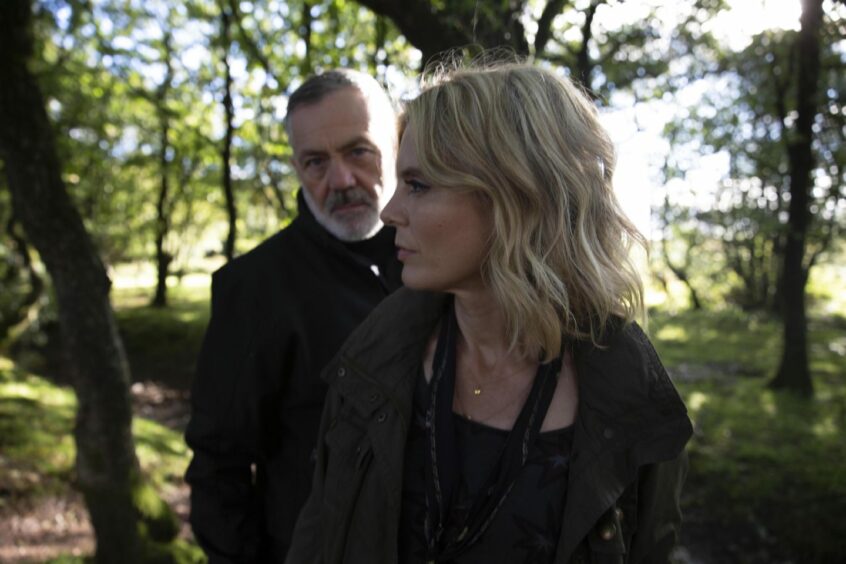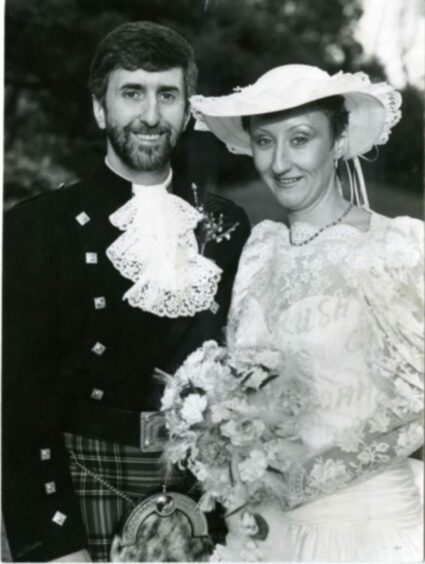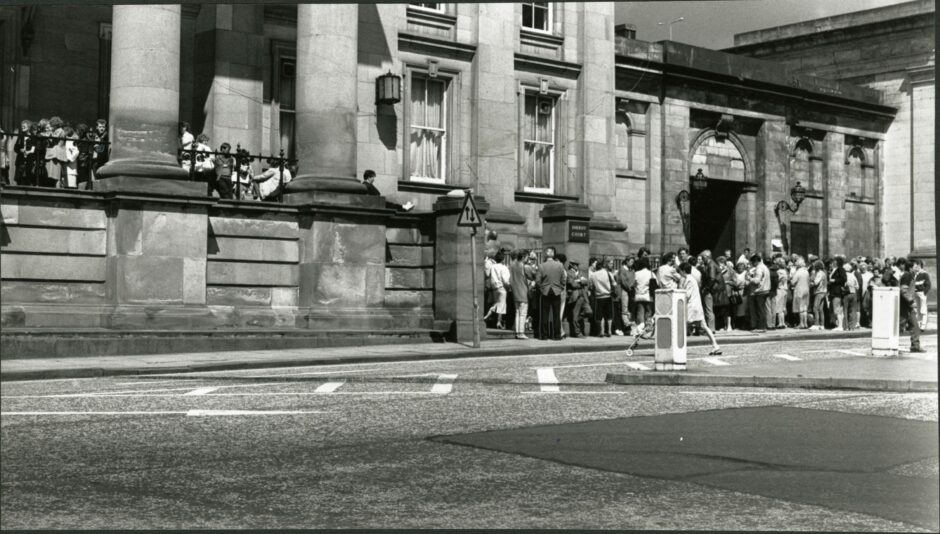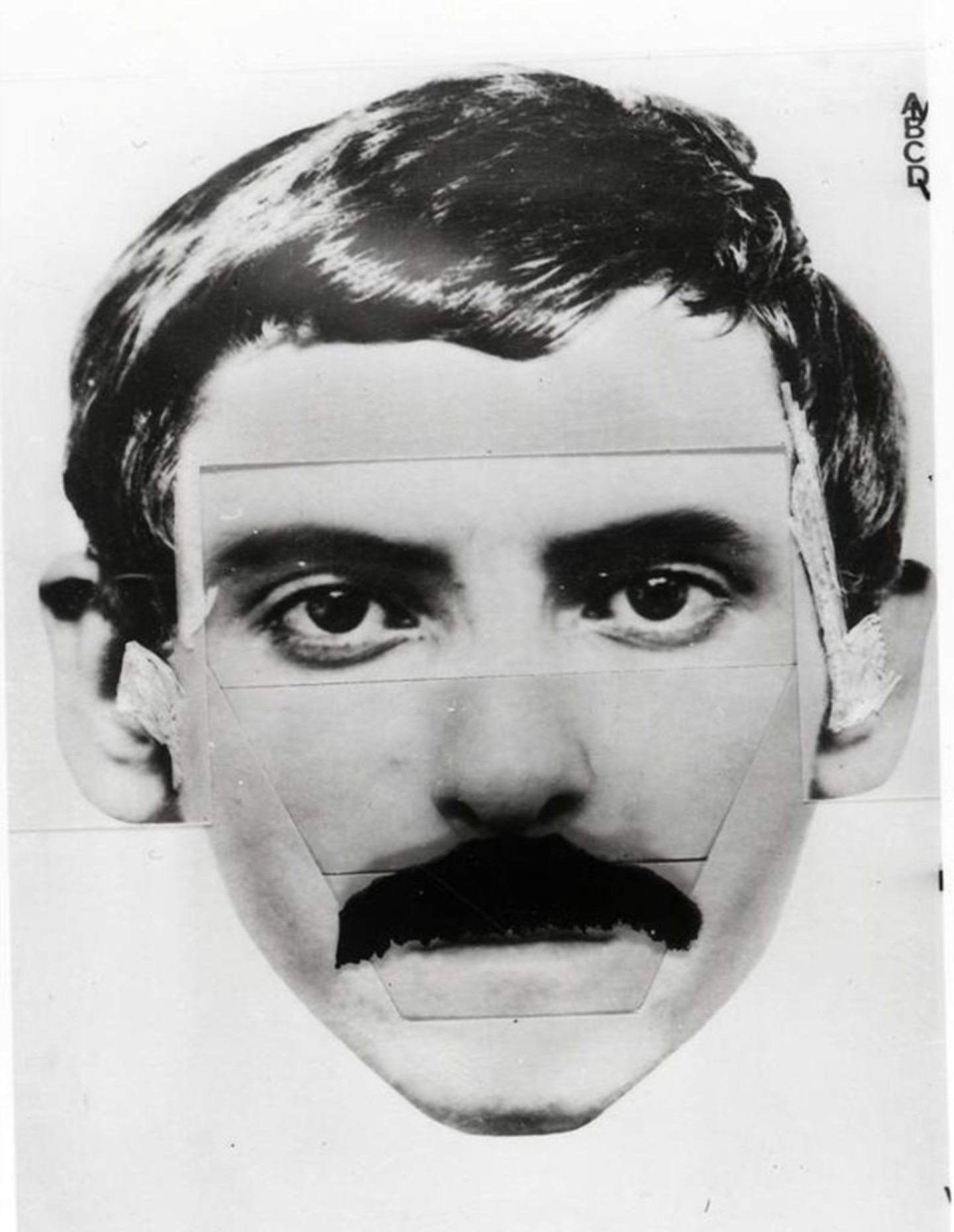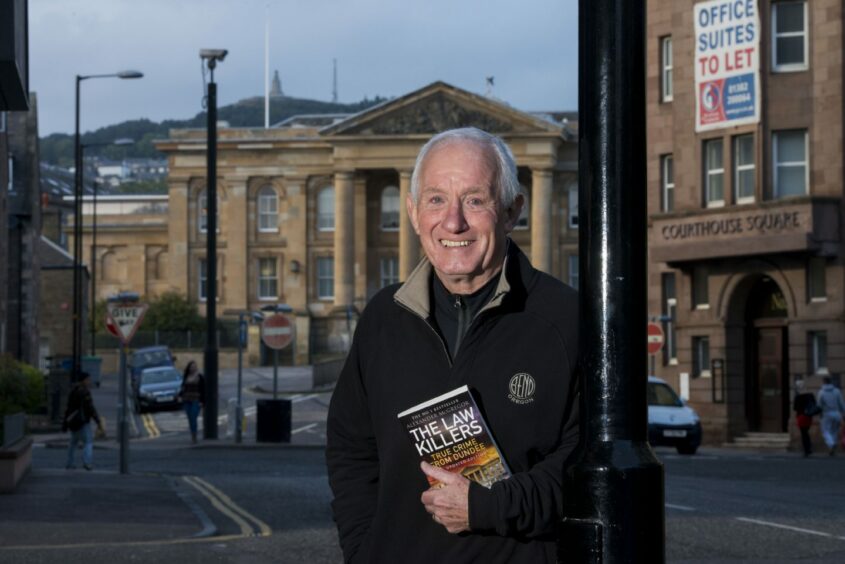Emilia Fox show investigates cold case
[ad_1]
It has become one of the UK’s most intriguing and enduring murder mysteries, prompting repeated cold case reviews and public appeals for assistance.
More money and police time has been spent on the Templeton Woods murders than any other investigation in Dundee’s colourful crime history.
But a solution remains as elusive as ever.
Victims bodies lain 150m apart
On a snowy afternoon in March 1979 a young couple strolling in Templeton Woods on the outskirts of Dundee stumbled upon the naked body of a young woman.
She had been strangled and was later identified as 18-year-old Carol Lannen, a sex worker and young mother who had last been seen getting into a car in the city centre the night before.
Eleven months later, another two people walking in the woods made a horrifyingly similar discovery when they found the body of Elizabeth McCabe, a 20-year-old nursery nurse. She too was unclothed and she had also been strangled.
The spots where the two corpses had lain were only 150 yards apart.
Elizabeth had also last been seen in the centre of Dundee just a few hundred yards from where Carol had vanished.
She had been missing for two weeks following a night out with a friend.
The double killings ultimately launched the biggest murder hunts Dundee has ever known, yet, even now, after the passage of more than 40 years, detectives are still no closer to catching whoever was responsible.
Even more baffling, they have no clue whether the two young women, who apparently never knew each other, perished at the hands of the same serial killer or whether their last resting place was simply an accident of geography.
The only arrest was made some 25 years after the killings, leading to taxi driver Vincent Simpson standing trial for the murder of Elizabeth McCabe.
He was quickly acquitted by a jury after his defence team demolished the Crown case.
There have been no significant developments since.
New Emilia Fox show
The latest bid to unravel the mystery comes with an investigation by leading UK criminologist Emeritus Professor David Wilson and Emilia Fox, star of BBC TV’s Silent Witness.
They visited Dundee several months ago to investigate and film their latest series of In The Footsteps of Killers, which examines cold cases.
The results will be shown as the launch episode on Channel 4 this week.
During their visit, the pair interviewed former police officers, members of the legal profession, victim relatives, and social workers, among others.
Also assisting with the programme was Alexander McGregor, former Chief Reporter of The Courier, who has written extensively on the murders in newspaper articles and in his best-selling book The Law Killers.
The Templeton Woods murders is now the largest chapter in a recently published updated edition of The Law Killers.
Wife-killer Hunter matched photo-fit
After his own previous investigations, he revealed his conviction that social worker Andrew Hunter, whose first wife apparently committed suicide, and who would go on to murder his second wife, should be considered a prime suspect in at least one, if not both, of the cases.
His theory forms the pivotal part of the programme after Professor Wilson and Emilia Fox followed up his conclusions.
Hunter went to the police on August 22 1987 to report the disappearance of his wife, then a few weeks pregnant, from their home in Carnoustie.
He said he had last seen her the day before when she set off to visit her parents in Glenrothes with the family dog and told police she had a history of attempted suicide.
The day after he reported her missing, Lynda’s car was found in Manchester.
Police took 1,200 witness statements and interviewed 5,000 people over several months throughout the intensive investigation that spread all over Britain.
Hunter’s cover story was blown when he was seen by witnesses driving his distressed wife in her car on the A914 through Fife on the morning of August 21.
But just when it seemed Lynda would never be found, a dog walker came upon her body the following February, some six months after she vanished, in a wood in Ladybank.
She was found with Shep’s dog lead round her neck.
“I started to see Andrew Hunter as a very plausible suspect for the murder of Carol several years ago when I was researching a different chapter for the book and was struck by just how much he resembled a photo-fit of the man seeing driving away with her on the night she vanished,” explained Alexander.
‘Evidence against Hunter stacked up’
“The more I looked at other factors, the more the circumstantial evidence against Hunter began to stack up.
After I wrote about my beliefs, I received a letter from the mother of another young sex worker who died in suspicious circumstances after being closely involved with Hunter.
“What she told me pointed me even more in his direction.”
He passed his thoughts on to Professor Wilson and his team, and after exploring them and making their own inquiries, they now share his opinion.
Alexander said: “There are fewer reasons to believe that Hunter might have gone on to kill Elizabeth. But he was personable and presentable and associated with other women not involved in the sex industry.
“It is entirely possible he knew her.”
It was only during and after the trial that the full extent of Hunter’s ruthlessness and lust for women became public knowledge.
Numerous prostitutes came forward to say they had been picked up by Hunter and taken to his Carnoustie home – some within days of Lynda’s disappearance.
One particular prostitute, a 22-year-old drug addict, was a favourite, and a regular at his home where they had sex sessions before and after Lynda’s death.
She had been with him on the day police called to say that Lynda’s body had finally been found in the woods.
Just 24 hours later the girl died, apparently of a drugs overdose.
Alexander said: “Sadly, Hunter will never be called to account, having died in prison in 1993, five years into his life sentence.
“What is inescapable, however, is that three women intimately connected to him all died of unnatural causes within 26 short months of each other.”
Would Hunter have been charged?
Professor Wilson, Emeritus Professor of criminology at Birmingham University, who was also once a prison governor, said: “I have always been intrigued by this case, which I remember reading about at the time and then much later discussing with fellow criminologists when I became external examiner at Abertay University.
“What initially caught my attention was the fact that this appeared to be a double murder. However, it would soon become clear to me that while the cases appeared to be linked, there were differences between the two murders.
“Most obviously, I would have expected the killer to have escalated his behaviour – he would have become more extreme – during his murder of Elizabeth if he had also murdered Carol, but in fact we see the opposite.
“I think that on balance there were two different culprits and that Elizabeth was likely to have been murdered by someone she knew.
“I think we have gone as far as we can possibly go to make this dreadful cold case hot again. And, if he was still alive, I would hope that from what has been uncovered, Police Scotland would be knocking on Andrew Hunter’s door and charging him with Carol’s murder.”
In The Footsteps of Killers: The Templeton Woods Murders, will be shown on Channel 4 at 10pm on Thursday.
[ad_2]
Source link
